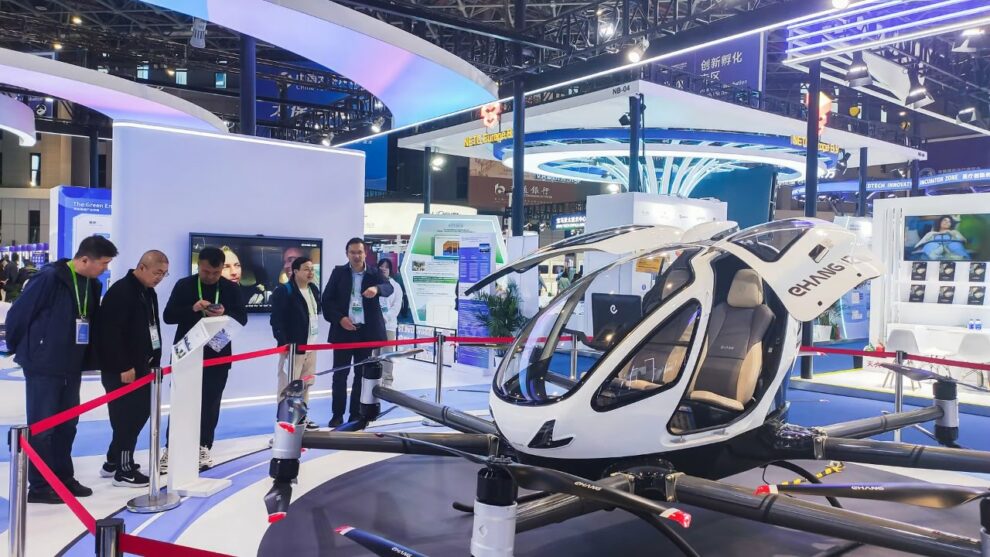Chinese aviation company EHang has marked a significant milestone in electric aviation history by completing the world’s first pilotless test flight of a passenger-carrying electric vertical takeoff and landing (eVTOL) aircraft powered by solid-state battery technology. The groundbreaking flight, which lasted over 48 minutes, demonstrates a major advancement in both aviation and electric vehicle technology.
The successful test of the EH216-S aircraft represents a convergence of two cutting-edge technologies: autonomous flight systems and solid-state batteries. This achievement is particularly noteworthy as solid-state batteries offer substantial advantages over traditional lithium-ion batteries, including higher energy density, extended range, faster charging capabilities, and enhanced safety through reduced fire risk.
EHang’s breakthrough comes from a strategic partnership with Shenzhen Inx Energy Technology Company, initiated in September 2023. The collaboration focused specifically on developing solid-state batteries optimized for eVTOL applications, requiring multiple iterations before achieving the successful prototype used in the test flight.
Zhao Wang, EHang’s Chief Operating Officer, emphasized the significance of this achievement, noting that it not only advances solid-state battery technology but also substantially improves aircraft endurance and operational efficiency. The company’s progress extends beyond this single application, with ongoing development of specialized battery solutions for various aviation needs, including ultra-fast charging systems designed for high-frequency short-distance flights.
The achievement positions EHang at the forefront of the emerging urban air mobility revolution, although they’re not alone in this rapidly evolving sector. Major players including Toyota and Boeing are also developing their own eVTOL aircraft, with the industry marking another milestone earlier this year when an eVTOL completed the first-ever flight over New York City. However, EHang’s successful integration of solid-state battery technology sets them apart in this competitive field.
This advancement has implications far beyond aviation. The demonstrated success of solid-state batteries in demanding aviation applications could accelerate their adoption in ground-based electric vehicles. The technology’s advantages – particularly increased range, faster charging times, and improved safety – could help overcome common consumer concerns about electric vehicle adoption, potentially accelerating the transition away from fossil fuel-dependent transportation.

EHang’s timeline for commercialization appears ambitious but focused, with plans to scale up solid-state battery production by the end of 2025. This rapid development schedule reflects the growing momentum in both the electric aviation and solid-state battery sectors, as well as increasing market demand for sustainable transportation solutions.
The environmental implications of this breakthrough are significant. As concerns about climate change intensify, the development of more efficient and practical electric transportation options becomes increasingly crucial. The successful deployment of solid-state batteries in eVTOLs demonstrates their potential to power various forms of electric transportation, potentially reducing the carbon emissions that contribute to extreme weather events and environmental degradation.
The achievement also highlights China’s growing influence in advanced transportation technology. As traditional automotive and aviation powers race to develop next-generation electric vehicles and aircraft, Chinese companies like EHang are demonstrating their ability to pioneer breakthrough technologies that could reshape global transportation.
Looking ahead, the successful test flight suggests that the vision of electric air taxis operating in urban environments is moving closer to reality. The combination of autonomous flight capabilities and advanced battery technology could transform urban mobility, offering new solutions to transportation challenges while minimizing environmental impact.
As EHang works toward its production goals, the broader implications of this achievement continue to unfold, potentially accelerating the global transition to more sustainable transportation solutions across both aviation and automotive sectors.
















Add Comment